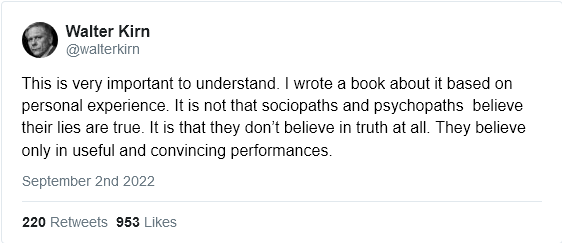As a bumptious adolescent in upstate New York, I stumbled on a British collection of Oscar Wilde’s epigrams in a secondhand bookstore. It was an electrifying revelation, a text that I studied like the bible. What bold, scathing wit, cutting through the sentimental fog of those still rigidly conformist early 1960s, when good girls were expected to simper and defer.
But I never fully understood Wilde’s caustic satire of Victorian philanthropists and humanitarians until the present sludgy tide of political correctness began flooding government, education, and media over the past two decades. Wilde saw the insufferable arrogance and preening sanctimony in his era’s self-appointed guardians of morality.
We’re back to the hypocrisy sweepstakes, where gestures of virtue are as formalized as kabuki. Humor has been assassinated. An off word at work or school will get you booted to the gallows. This is the graveyard of liberalism, whose once noble ideals have turned spectral and vampiric.
Camille Paglia, “Hillary wants Trump to win again”, Spectator USA, 2018-12-04.
November 23, 2022
QotD: Humour and political correctness
October 5, 2022
Are the protests in Iran about to tip over into actual revolution?
In The Line, Kaveh Shahrooz reports on the still-ongoing public protests after the death of a young woman at the hands of the morality police:

Aftermath of anti-government protests in Bojnord, North Khorasan Province, Iran, 22 September, 2022.
Photo from Tasnim News Agency Bojnord Desk via Wikimedia Commons.
Revolutions are funny things. They sometimes appear impossible until, in one single moment, they become inevitable. In Iran, that moment came on September 13th with the murder of a young woman.
Mahsa Amini, a 22-year-old who was also known by her Kurdish name “Gina”, had come from Iran’s Kurdistan region to visit her brother in Tehran. It was during that trip that she faced a particular humiliation that has become a fact of life for tens of millions of women in that country: a run-in with the country’s gasht-e ershad (“Guidance Patrol”). The role of this roving gang, seemingly imported from Atwood’s Gilead and called Iran’s “morality police”, is to monitor the streets to find and punish violations of the regime’s seventh-century moral and dress codes.
Having determined that Mahsa’s hijab exposed a little too much hair — a few strands of a woman’s hair and men will simply be incapable of controlling their sexual urges, the logic goes — they detained and beat her severely. The story for most women who deal with the morality police typically ends there, after which they are released to seethe at having endured another round of state-imposed gender apartheid. For Mahsa, the story ended differently: with a skull fracture that caused her to be brought, brain dead, to a local clinic. She died there on September 16th.
The murder of Mahsa Amini was the spark that set off a revolution. The killing reminded women of their daily misery at the hands of a regime that, both de facto and de jure, treats them as second-class citizens. And it reminded everyone of the million other senseless cruelties, large and small, that they must endure daily at the hands of a barbaric theocracy. Outraged by the death of an innocent young woman, the people took to the streets in protests that continue to this day.
There have been mass protests in Iran before. In 2009, in response to a widespread belief that Mahmoud Ahmadinejad had illegally stolen the presidential election — to the extent the word “election” means anything in a country where candidates must first be approved by a clerical body loyal to the regime — citizens protested by the millions. Their slogan, “Where’s my vote?” rested on the premise that a fair, albeit controlled, election was something that could change the system for the better. The protesters typically avoided confrontation with security forces. Even when they happened to corner a regime thug periodically, they ensured that no harm was done to him.
September 5, 2022
“In this version of the story, the little boy points out that the naked emperor has no soul, and the people begin to notice”
Chris Bray uses the example of a new Disney show featuring the literal daughter of Satan — for the LULs — to illustrate just how unhinged our culture has become:
Give me a minute, and let me show you something without framing or a narrative. Then I’ll talk about it, but first just notice it. The company founded by Walt Disney has a new show about a middle school girl who has an awkward dilemma: She’s the Antichrist (as her mom reveals to her one day, after a weird day at school), and her Cool Dad is Satan, who has lots of funny lines about what a wild guy he is. Funny teen girl dilemmas follow, like this one time her parents show up to a party — which, like, super bummer and everything, but it’s even funnier when your dad is actually, literally Satan.
[…]
But no lines are being crossed, because there are no lines. Satan is a television character; immorality is impossible in a culture without morality, without a moral framework and moral anchors. Lacking principles, no one in power can violate any. They’re completely adrift, completely free, and completely ruined. They can go anywhere, and they often do. You can’t sin when nothing is a sin. Well, except for using the wrong pronouns, but more or less.
Now: There are people who are not adrift, who have moral reference points. I continue to believe they’re the majority, geographically prevalent and often thick on the ground, morally attuned as communities and families in a global and national milieu of amoral disconnectedness.
So we have people who see no lines, traveling freely across discarded boundaries, watched by people who are appalled by line-crossing that the line-crossers don’t perceive at all.
See also this essay from Dr. Robert Yoho, “Guess Who Passes the Psychopath Test?”
Psychopathic lying is successful because normal people do not believe that anyone lies as a routine. Debates with sociopaths are useless. No matter what we say, no matter how much evidence is given, it has no meaning for them. Their sole goal is to fool us into classifying them as normal so they can continue to deceive, control, and use us …
When major positions of power in business, government, industry, and society are filled by sociopaths, a downward spiral begins. The normal people eventually recognize what their leaders are and devise survival strategies.
We’re there, though it’s hard to place “there” on a map. We can see that a significant share of power and status — in politics, in economics, and in culture — belongs to people who have no perception of social rules or moral limits at all. And we see that some lines need to be reimposed, urgently and firmly.
After a few years of, “but these are the experts, right?” it feels like the beginning of the phase in which everybody finally knows the game and the stakes. In this version of the story, the little boy points out that the naked emperor has no soul, and the people begin to notice. And then?
June 21, 2022
QotD: The modern age of ad hominem
Ad Hominem has become not only the prime argument of the scalawag, but, in the current intellectual climate, the only argument. It is the only arrow in the quiver and the only dart they have.
Hence, I myself have developed a particular enmity and impatience with the art of merely labeling opposing viewpoints as anathema, and dismissing them, sight unseen, with no further investigation.
These are not cases where a particular person known to have an ulterior motive or suffering a well earned reputation for dishonesty find his remarks being regarded with judicious skepticism. These are cases where to disagree with the party line or popular gossip provokes the accusation of being such a person.
While not all scalawags are Morlocks, all Morlocks are scalawags. Scalawaggery is the core of their philosophy. Morlock borrowed from the generous genius of HG Wells, for anyone who imagines himself to be evolved beyond human norms and into the realm of moral inversion, so that all rules of right and wrong, only for oneself, are flipped downside up.
In Wells, the Morlock is a cannibal troglodyte who treats other human descendants as cattle. In my wry jest, a Morlock is an intellectual trapped in a structure of reasoning he erected, at first, to justify his inhumanity toward his fellow human beings. That structure has since become for his his thought-prison. The bars and chains are mental and spiritual. Impalpable, they are unbreakable.
Their inhumanity include treating the children of other men as lab experiments and a mass attempt at sexual social engineering, namely, the elimination of the two sexes. Inhumanity also includes treating individuals as fungible and interchangeable nonentities in the great game of identity politics, so that simplistic and bigoted generalizations about minorities or majorities become not merely permitted, but mandatory. Inhumanity includes treating the prosperity and freedom of other men as optional, or even as hindrances, in the headlong panics and stampedes inspired by orchestrated ecological scaremongering and virtue-signaling.
Inhumanity includes regarding other men as meat-robots, or hairless apes, or helpless cells of blind historical forces, and hence as nothing more than the raw materials to be bred like livestock or organized like chain gangs or stacked like cordwood or slaughtered like scapegoats to create the foundations of the towers of Utopia.
The inhumanity, sadly, also and finally includes an inhumanity toward themselves, whenever a godless and soulless mind turns inward, and develops terminal narcissism. All men beyond the narrow orbit of self-absorbed self-regard are reduced to flitting shadows, and seem to Narcissus to be merely echoes, not real.
John C. Wright, “Ad Hominem and Illusion”, John C. Wright, 2022-03-18.
May 28, 2022
Morality is Dead. Hollywood Killed It.
Foundation for Economic Education
Published 27 May 2022What’s with all the nihilistic, amoral, dark anti-hero leads in movies and shows? Are we supposed to treat horrible characters as pinnacles of human behavior now?
The bleak content that’s crept its way mainstream over the last 10 years should concern us all. The stories we tell matter, for they influence what we believe and what values we adopt.
Fortunately, a renewed appreciation for natural rights and individualism could be the antidote to the immense darkness that’s blanketed American culture as of late. That’s what we’ll get down to on this feature episode of Out of Frame.
______________________________
FOLLOW/SUPPORT US:Support Out of Frame on Patreon or SubscribeStar:
https://www.patreon.com/OutofFrameShow
https://www.subscribestar.com/outoffr…Join our Discord: https://discord.gg/RKc4AcGQ9k
Sign up for our mailing list and never miss an episode again:
https://fee.org/oof-newsletterCheck out our podcast, Out of Frame: Behind the Scenes: https://www.youtube.com/channel/UCiS5…
Follow us EVERYWHERE!
https://linktr.ee/outofframefee
______________________________
CREDITS:
Written by Sean W. Malone
Produced by Sean W. Malone
Edited by Michael Ozias
Asst. Edited by Abby Richardson
May 17, 2022
Mary Whitehouse, “The avenging angel of Middle England”
At First Things, Jonathon Van Maren considers the legacy of Mary Whitehouse, the often mocked champion of public decency and crusader against pornography and blasphemy in the media from the mid-60s onwards:

I was surprised to find few public domain images of Mary Whitehouse available, so here is a selection of thumbnails (hopefully this won’t violate any copyright restrictions)
We have reached the point where our post-Christian elites, having safely enshrined the sexual revolution in law, can afford the luxury of occasionally admitting that their opponents were right. Exhibit A is the new BBC documentary Banned! The Mary Whitehouse Story, which details the life of Great Britain’s most infamous morality campaigner. Beginning with a crusade to keep smut and blasphemy off TV in 1964, Whitehouse rallied hundreds of thousands of women (and ordinary Britons) to her campaigns against “the permissive society”, culminating in her war against the porn industry. Alas, she lost most of her battles — but her warnings proved prophetic.
Mary Whitehouse was born in Warwickshire in 1910. She first started organizing in the 1960s because she — and millions of other mothers — did not like what her children were seeing on TV. A committed traditional Christian, she watched with dismay as the country she loved began to change around her. The metropolitan elites she faced off with thought she was “a provincial Birmingham housewife”. They didn’t underestimate her for long. She hosted her first mass meeting in 1964, and her organizing skills soon highlighted the subterranean power of Britain’s women. Whitehouse tapped into the gardening associations, the mothers’ unions, and other grassroots community organizations filled with folks who cared deeply about their children and the moral fabric of their nation. She brought them together, and when she spoke, it was with the voices of legions of little people. Her nickname summed it up: “The avenging angel of Middle England”.
Whitehouse’s first major campaign was to “Clean Up TV”, and her parliamentary petition to that end garnered around 500,000 signatures. In 1971, Whitehouse began organizing against sex ed in schools, triggered by an “educational” video she saw that was filled with pornographic scenes. Whitehouse was accused of hysteria — but Banned! features a pornographer admitting that, by using sex ed, “we gradually pushed back the barriers”, much as Whitehouse warned they would. Now that they’ve won, they can admit they were lying.
Whitehouse and others appalled by attempts to corrupt their children were accused of being “horrified by sex”. In reality, they were horrified by the version of sex presented by sex educators — in much the same way an art lover would be appalled to see vandals approaching a great masterpiece with cans of spray-paint and lewd laughter. Progressives never understood this, and consequently Whitehouse has been almost entirely defined by what she fought against rather than what she fought for.
Whitehouse’s lobbying resulted in several pieces of legislation, including the 1981 Indecent Displays Act, which sought to restrain sex shops and the display of porn, as well as the 1984 Video Recordings Act, intended to limit the sale of extreme video content. Unfortunately, these acts were rendered moot by the internet. But her greatest achievement was the 1978 Protection of Children Act, which criminalized child pornography. It seems remarkable that such a law did not already exist, but in the ’70s the Paedophile Information Exchange (PIE) was operating openly in Britain; it was supported by some British elites who believed that sex with children was the natural next step in sexual liberation.
April 4, 2022
Reconsidering the legacy of conservative activist Mary Whitehouse
Mary Whitehouse was a figure of mockery and abuse for much of her time on the public stage, a one-woman British equivalent to the American “Moral Majority” in the 1980s, without the performative religious connections. Even those who agreed with her concerns were careful to distance themselves from her, yet Alexander Larman wonders if she wasn’t more right than wrong after all:

I was surprised to find few public domain images of Mary Whitehouse available, so here is a selection of thumbnails (hopefully this won’t violate any copyright restrictions)
“The Queen of Clean”. “The Archangel of Anti-Smut”. Whatever you thought of the campaigner and activist Mary Whitehouse, she was hard to ignore. From her heyday in the 60s until her gradual decline in both relevance and physical faculties in the late 80s, she became the physical embodiment of social conservatism, loudly demanding that “family values” be placed at the heart of the national conversation, and that national evils (including pornography, abortion, swearing, homosexuality and the BBC in general) should be either tamed or dispensed with altogether.
Whitehouse died in 2001, and the obituaries trod a fine line between acknowledging her impact — even, at times, her importance — and denigrating her as someone who was almost driven insane by her campaign to clean up Britain’s screens. The Daily Telegraph, a newspaper that one might have assumed was a natural ally, sighed “[she was] seemingly as concerned to eliminate the occasional ‘damn’ or ‘bloody’ as to prevent the worst excesses of pornography or violence” and the Guardian, a long-standing and probably inevitable bête noire, marked her passing by calling her “a self-appointed and much-derided guardian of public morals”, sneered at her “simplistic and nannyish” views and approvingly cited Ned Sherrin’s comment that “If she had been ignored for the last 30 years the world would have been a better place”.
It also, with some reluctance, admitted that “it was possible for many middle-of-the-roaders to think she was just possibly right”. The debate continues as to whether Whitehouse was an oddly prurient figure, whose apparently endless campaigning was dictated by some sort of strange mental imbalance (she boasted about her “direct line to God”, as if the Almighty were responsible for guiding her attempts to rail against the likes of Dennis Potter) or an ahead-of-her-time master of both media relations and social understanding. And now, for some reason, Whitehouse has once again returned to our screens and airwaves, two decades after her death.
The journalist Samira Ahmed recently presented a Radio 4 documentary, Disgusted, Mary Whitehouse, that attempted to ask whether Whitehouse had somehow anticipated the rise of the internet, social media and society’s concomitant, and doomed, attempts to preserve the nation’s innocence amidst the ready availability of virtually every human depravity imaginable at the jab of an eager finger. This was followed by another two-part documentary on television, Banned! The Mary Whitehouse Story, in which various luminaries debated whether Whitehouse was simply a bigot who should best be forgotten about, or if she had a salient point that has, if anything, become more relevant since her death.
On the one hand, there is little doubt that Whitehouse was a proudly ignorant and even destructive figure when it came to arts and culture. She refused to watch most of the programmes that she organised campaigns against, announcing, “I have too much respect for my mind,” and declined to consider such things as artistic merit, creative intentions or context. For her, nudity, violence and sex were things that had no place in British public life, and she was happy to roll up her sleeves and lead well-organised campaigns against things that she disapproved of. It was partly because of her that Kubrick withdrew A Clockwork Orange from exhibition in Britain for two decades, and her private prosecutions of Gay News and the director Michael Bogdanov for, respectively, blasphemous libel and staging a homosexual rape scene in The Romans in Britain, were vindictive and viciously closed-minded. The first was successful, the second was not, and its failure in 1983 saw the beginning of her decline from public relevance.
March 19, 2022
QotD: The sterility of partisan political argument
For the partisan of deadly nonsense, the person on the other side is neither right nor wrong, since rightness and wrongness are never to be discussed: the person on the other side is merely a jackass, a bigot, ignorant, uninformed, pathetically stupid, Neanderthal, reactionary, bitter, a yokel, a class-traitor, and racist, racist, racist, and racist.
If you are arguing with someone, say, who has a better education than you, a higher I.Q., with perhaps a doctorate in law and a career as a journalist and a published series of books on his resume, that does not matter. The mere fact that he comes to different conclusions than the Party line indicates that he is stupid uneducated Nazi bigot, and a stupid bigoted fascist racist moron.
This is argumentum ad cloaca —— ratiocination via offal. Whatever the loudest donkey laughs loudest at, you take to be untrue. Since that was the way (admit it!) you yourself were convinced, O ye of little mind, it is the first, usually the only means, to which you resort to convince others: the volume and clamor is what matters, not the content.
The reason for the inadequacy of these condemnations, the reason why they are so unimaginative, is because of the paucity of the moral vocabulary of the Left. They do not have words to express outrage, so they sneer and yodel. They are like creature struck dumb, and only able to act out their condemnation by means of antic pantomime.
The more closely they follow Marx, the more impoverished their moral vocabulary becomes. You cannot call someone evil once you accept the proposition that all standards of good and evil are merely genetically-determined group survival behaviors, or merely culturally determined artifacts, or merely ideological superstructures meant to promote class interests. Your concept has lost its referents: it can be used only metaphorically, or ironically.
Likewise, you cannot call someone damned if you don’t believe in damnation. There is no such thing as blasphemy if there is nothing sacred, supernatural, or divine.
Likewise again, you cannot call someone illogical if logic is no longer the standard used to separate self-consistent from self-contradictory statements: because then you would have to argue the merits of the case, and rely on reason, like Adam Smith, rather than on verbal fetishes, like Karl Marx.
Our Progressive detractors have to call the object of their scorn a racist (or a parallel word, such as sexist, lookist, homophobe, capitalist, colorist, agist, whateverist) because that is the only arrow in their quiver. That is the only thing they have to shoot, so they shoot, and do not care how short of the target the dart falls.
John C. Wright, “The Crazy Years and their Empty Moral Vocabulary”, John C. Wright, 2019-02-18.
March 9, 2022
QotD: Cynicism
Now, there’s this about cynicism … It’s the universe’s most supine moral position. Real comfortable. If nothing can be done, then you’re not some kind of shit for not doing it, and you can lie there and stink to yourself in perfect peace.
Lois McMaster Bujold, Borders of Infinity, 1989.
August 18, 2021
The Conscripts and Conscientious Objectors of World War Two – WW2 Special
World War Two
Published 17 Aug 2021In keeping with their ideals of personal liberty, Britain and the United States have historically maintained relatively small armies made up of volunteer soldiers. When Germany and Japan mobilize huge numbers of well-trained conscripts and sweep across Europe and Asia, the democratic allies devote huge resources to closing the gap, while respecting the rights of those who object to fighting on moral grounds.
(more…)
August 3, 2021
QotD: Robert Heinlein predicted the 2020s amazingly well in 1959
[High school Moral Philosophy teacher and retired Mobile Infantry Colonel Jean DuBois lecturing his class on juvenile delinquents and the permissive society that helped create them:]
“[These] unfortunate juvenile criminals were born with none, even as you and I, and they had no chance to acquire any; their experiences did not permit it. What is ‘moral sense’? It is an elaboration of the human instinct to survive. The instinct to survive is human nature itself, and every aspect of our personalities derives from it. Anything that conflicts with the survival instinct acts sooner or later to eliminate the individual and thereby fails to show up in future generations.
“But the instinct to survive can be cultivated into motivations more subtle and much more complex than the blind, brute urge of the individual to stay alive. [What one] miscalled ‘moral instinct’ was the instilling in you by your elders of the truth that survival can have stronger imperatives than that of your own personal survival. Survival of your family, for example. Of your children … of your nation. And so on up.
“[These] juvenile criminals hit a low level. Born with only the instinct for survival, the highest morality they achieved was a shaky loyalty to a peer group, a street gang. But the do-gooders attempted to ‘appeal to their better natures’, to ‘reach them’, to ‘spark their moral sense’. They had no ‘better natures’; experience taught them that what they were doing was the way to survive. The puppy never got his spanking; therefore what he did with pleasure and success must be ‘moral’.
“The basis of all morality is duty, a concept with the same relation to group that self-interest has to individual. Nobody preached duty to these kids in a way they could understand — that is, with a spanking. But the society they were in told them endlessly about their ‘rights.'”
Robert A. Heinlein, Starship Troopers, 1959, quoted by Dave Huber in “Libertarian sci-fi author predicted current progressive-induced cultural failures over 60 years ago”, The College Fix, 2021-04-03.
June 5, 2021
The morality of collective intergenerational responsibility
Arthur Chrenkoff believes that the responsibility to compensate people for historical wrongs ends when the individuals who were harmed have died:
What I was querying was the practicality and the morality of reparations being paid today: “If great-great-grandchildren of perpetrators have to pay great-great-grandchildren of survivors, is there any limit on historical liability? 200 years? 500 years?”
Before we get any further into the discussion, let me restate here my position, which has not changed at all in light of the subsequent online exchanges and name-calling: I do not believe in collective intergenerational responsibility. Far from modern and enlightened, it strikes me as a primitive, ancient principle, in line with the Old Testament’s “an eye for an eye” mentality. Thought to call it Old Testament might be unkind to Old Testament, since already by the time the Book of Ezekiel was being compiled during the Babylonian Exile, mid-first millennium BC, the Judaic theology had morally evolved beyond the belief that the sins of the fathers are visited on their children. We are each a moral agent, enjoying free will and exercising own judgments and actions, and for all that we are rightly held responsible and accountable. But it is unjust to blame (and, at the other end of the spectrum, absurd to praise) us for what our literal and metaphorical ancestors had done or failed to do at one point or another in the past, or what they have collectively achieved.
And so, to the comment that genocide has no statute of limitation, I say: it should, and it should be right about the time that all those who were alive at the time and affected by it have passed away.
The concept of reparations for historical wrongs is increasingly in the news. In the United States, the question revolves around the evil of slavery, but it’s hardly an American-centric debate. In many Western European countries there is talk of reparations for colonialism. Then there is the agitation in Poland, long supported by the ruling Law and Justice party, that Germany should pay Poland reparations for death and destruction caused during the Second World War. While the quantum has sometimes been calculated upward of US$15 trillion, the official suggestions have hovered around the more “modest” €850 billion (1947 estimates in today’s currency).
[…]
Not just genocide – everything that has ever happened, both bad and good, ripples across time and shapes the present. This is what history is about. Each event has an infinite number of causes and an infinite number of consequences. Hence, conceptual problems start popping up once you try to unscramble the egg and make simple adjudications about complex past situations. It’s one thing to make moral judgments about what had happened, it’s another to apply judicial standards used in disputes between contemporaries to met out sanctions and punishment in relations to historical wrongs, which might have occurred centuries ago. For starters, the collective approach to situations where each individual was affected it their own unique way might simplify things but it surely does not paint an accurate picture or deliver real justice. This goes for both the victims and the perpetrators. (At the extreme, for example, potentially forcing the descendants of German pacifists to compensate the descendants of Polish collaborators. In fairness, there were few of either at the time, but most other historical events are significantly more complicated than the black and white story of Nazi aggression and crimes against humanity.)
Which brings me to the second problem: the supposed intergenerational nature of responsibility and punishment. Not only are we talking about entire nations or ethnic (or social or religious or other) groups as monoliths for legal purposes, somewhat akin to a corporation, but also monoliths in time, across an unlimited number of generations. I find it morally odious, but you may well say “well, it’s not about moral blame per se, but whether you have, intentionally or not, benefitted at the expense of past others as a consequence of the evil actions of your ancestors” – in other words, it’s not a punitive but a restorative justice. Putting aside, again, the fact that no two individuals are ever affected in exactly the same way, the past is much more complex than your simplistic unicausal, zero-sum calculations allow and so, consequently, simple justice in theory is simply unjust in practice. Take Germany for example; if you think that Germany and Germans as a collective had benefitted from their rapacious actions during the war, you clearly have little idea what happened to them between, say, 1943 and 1946. You might think, as many did particularly in the immediate aftermath of the war, that this was still not a (collective) punishment enough considering the extent and the gravity of crimes committed (including the Holocaust) but if there was a time to tip the scales even more it was contemporaneously. The point I’m making is that any short-term German gains have been wiped out by the deliberate actions (military or otherwise) of the Allies, who in so doing destroyed much of the native German wealth as well as the wealth stolen by Germany from the occupied territories. That Germany is rich today is despite, not because of the Second World War. And while it’s true that Poland, for example, and at least some of its people are poorer today than they would have been had there been no war, I return back to my original position: how is it just and fair for a 25-year old from Bremen to compensate Poland as a whole (or the Polish government to be exact) for the “ripples” set off six decades before they were even born?
March 20, 2021
QotD: Flipping the table on gun ownership regulation
Heh. State representative Fred Maslack of Vermont has proposed a bill under which non-gun-owners would have to register and pay a fee. Entertainingly enough, there is actual justification for this in a careful reading of the Vermont state constitution.
The Hon. Rep. Maslack is joking. I think. And I’m against requiring people who don’t want to bear arms to do so. But gad, how tempting – because underlying his argument is a truth that the drafters of the Vermont and U.S. constitutions understood. People who refuse to take arms in defense of themselves and their neighbors are inflicting a cost on their communities far more certainly than healthy people who refuse to buy medical insurance (and yes, I do think that proposed mandate is an intended target of Maslack’s jab). That externality is measured in higher crime rates, higher law-enforcement and prison budgets, and all the (dis)opportunity costs associated with increased crime. And that’s before you get to the political consequences …
I’ve never made a secret of my evaluation that refusal to bear arms is a form of moral cowardice masquerading as virtue. Real adults know how precious human life is, when they are ethically required to risk it on behalf of others, and when killing is both necessary and justified. Real adults know that there is no magic about wearing a police or military uniform; those decisions are just as hard, and just as necessary, when we deny we’re making them by delegating them to others. Real adults do not shirk the responsibility that this knowledge implies. And the wistful thought Rep Maslack’s proposal leaves me with is … maybe if moral cowardice cost money and humiliation, there would be less of it.
Eric S. Raymond, “Maybe if moral cowardice cost money, it would be less common?”, Armed and Dangerous, 2009-11-05.
February 27, 2021
Profiles in Cowardice — Justin Trudeau
Matt Gurney on how Prime Minister Justin Trudeau’s latest act of moral cowardice probably won’t hurt him at all in the polls:
It has been fascinating to watch the reaction to Prime Minister Justin Trudeau’s profile in non-courage this week, after he and most of his cabinet skipped a vote on a Tory motion seeking to declare China’s brutal campaign against the Uyghur people a genocide. (Marc Garneau, who was probably desperately wishing he was back in low-Earth orbit, showed up to abstain … because that’s a good use of an astronaut.) If there is anything close to a consensus on the matter, it’s that the PM was in a difficult spot and found a way to slither out of it at the cost of some dignity, but no other real loss.
Kaveh Shahrooz, in a piece here at The Line on Thursday, made that case well. He savaged Trudeau for his hypocrisy — “when the chips were down, the [gender-based analysis], the intersectional lens and the feminist foreign policy were tossed aside in favour of appeasing China,” he wrote — but he also noted that the entire affair won’t really hurt the PM. “Sadly, the worst that will happen to Trudeau because of the hypocrisy and incompetence displayed is some angry tweets and a few articles like this one,” said Shahrooz.
Maybe. But maybe not. Shahrooz and others are certainly right that the prime minister won’t pay an electoral price, and probably won’t see his polling waver. But history makes its own judgments. And I suspect this prime minister is more aware of that than most.
It seems a long time ago now, but in his first term, Trudeau made a habit of apologizing. Only rarely for stuff that he was actually himself responsible for — he’s kinda averse to doing that. But formal and public apologies for past failures? He was all over those. In 2018, the BBC even ran a piece noting the PM’s habit, and asked in the headline, “Does Justin Trudeau apologize too much?”
It’s not that there weren’t things worth apologizing for. In 2016, he apologized for Canada turning back the Komagata Maru, a ship carrying mostly Sikhs that was then forced to return to India, where 20 of them were killed in a riot. The next year, he apologized to survivors of residential schools in Newfoundland and Labrador, and to LGBT Canadians for discrimination they faced at the hands of the federal government. The next year, Jews and members of the Tsilhqot’in Nation received apologies for historical wrongs inflicted on them. And so on. It was a thing.
A man who so clearly adores taking a stage to shed a few tears while acknowledging wrongs committed by someone else, long ago, probably can’t avoid wondering who, in a hundred years, will be apologizing to Uyghurs for his refusal to clearly state that what is happening to them is a genocide.
December 27, 2020
QotD: Charles Dickens
… That I was, unparadoxically, also trying to put in the reader’s head, that Dickens has contributed to the demoralization of our world, was on the surface of my essay. In this respect, I was acknowledging this author’s great power. The reduction of hard moral fact, to mushy simper and what we now call “empathy,” was partly his doing. I detect it even in the unpleasant vibrations of BLM rioters, and other agents of our Left.
They “protest” things that, indirectly, they learnt to protest from the kind-hearted Dickens; subjective hysterias about the world being unfair. Of course it is unfair, as it has always been, and to everyone who has been living in it. But unfairness is a whim, compared to sound moral judgements, and the reticence that should accompany them. We cannot make the world “more fair” by rioting. Dickens, incidentally, agrees with me on that.
He was among the writers (and artists generally) who contributed subtly to our post-Christian worldview, based on emotion, not remorseless thought. Who made, say, Christmas about giving presents to little children, rather than centrally about the birth of Christ. That doesn’t mean his works should be suppressed. On the contrary, they should be read and enjoyed, with this thought in mind. He moralizes, but in a way that may actually subvert morality, by substituting “feelings” for the hard truths, which are to die for.
David Warren, “Retractiones”, Essays in Idleness, 2020-07-29.







